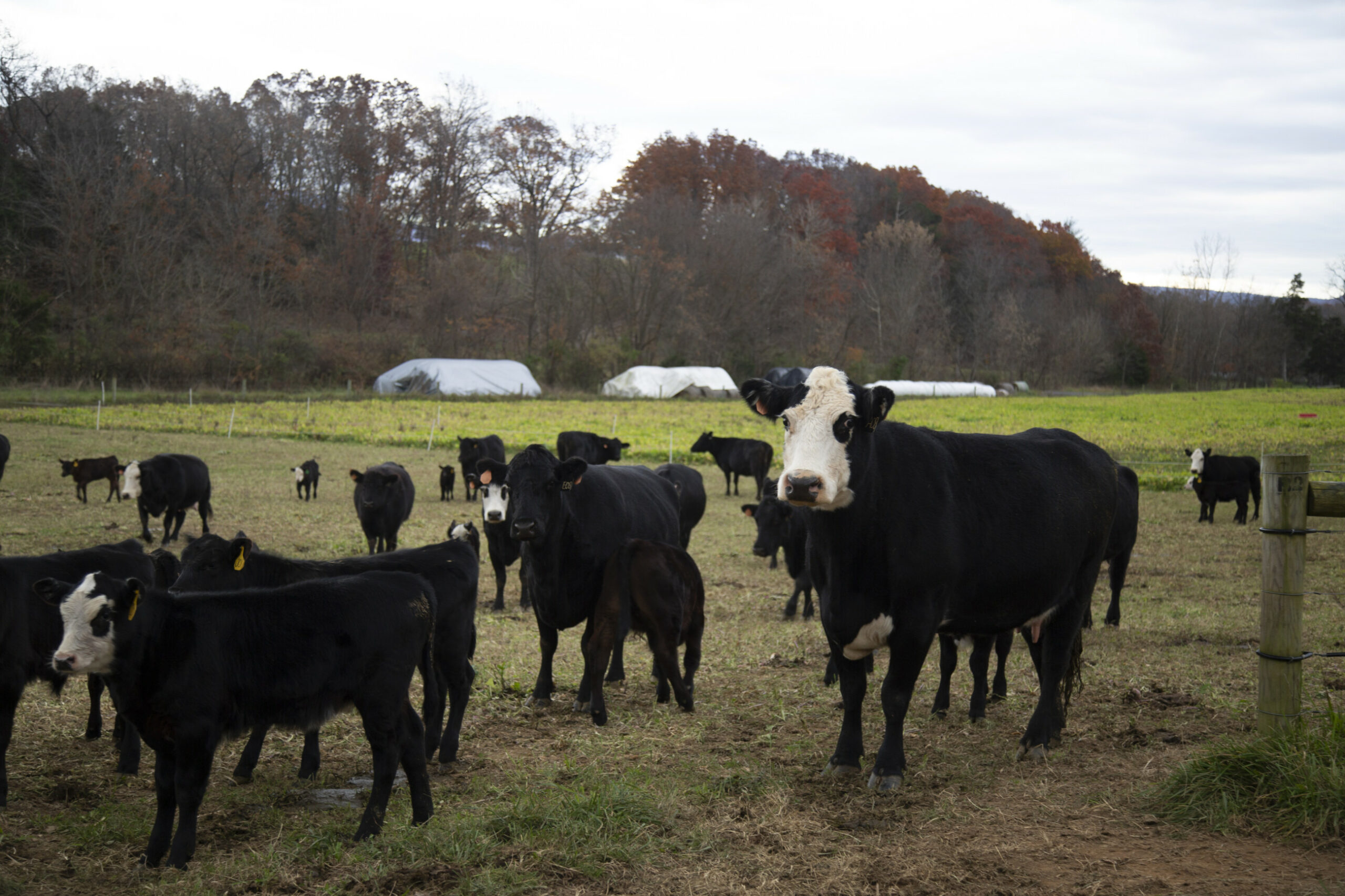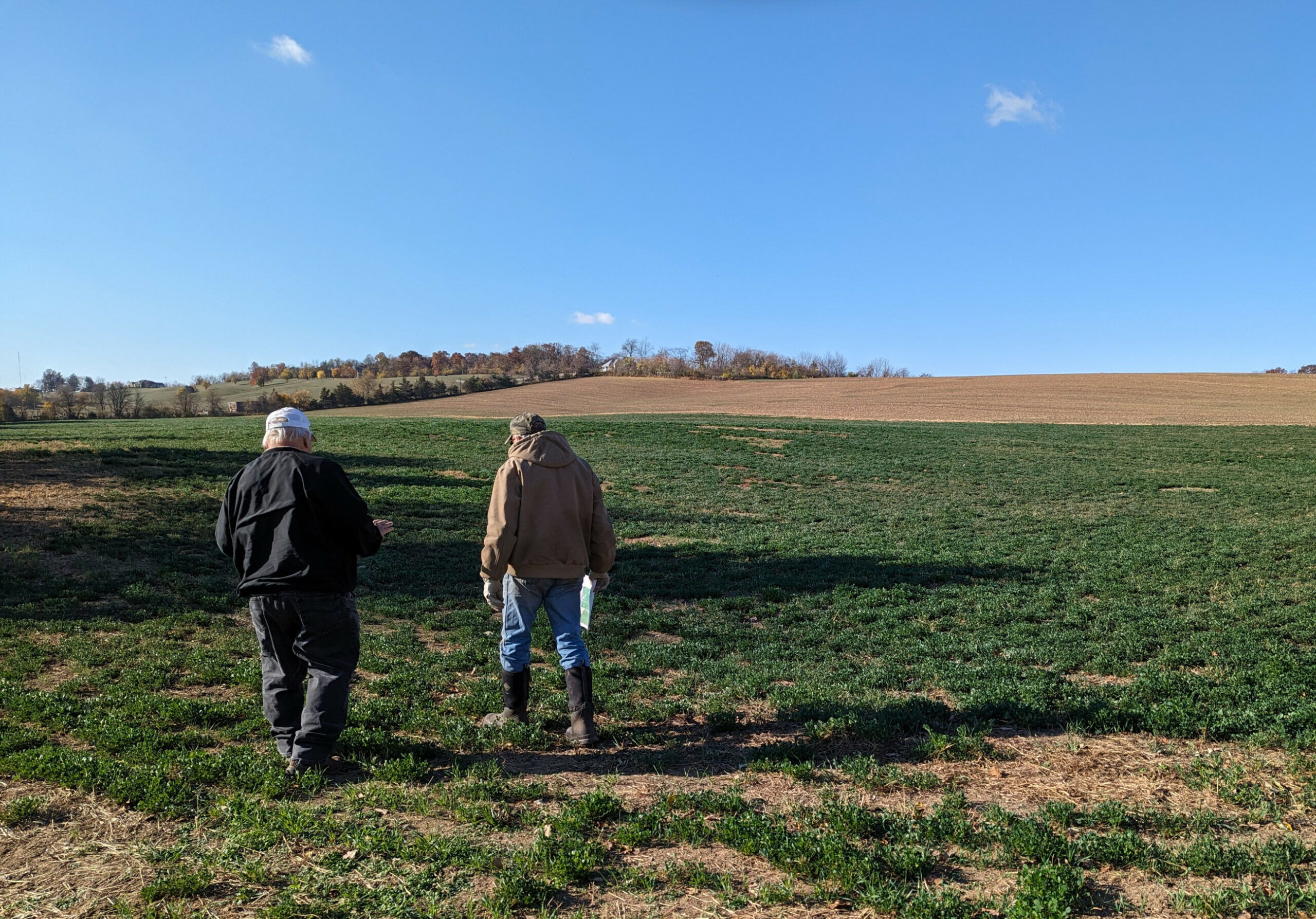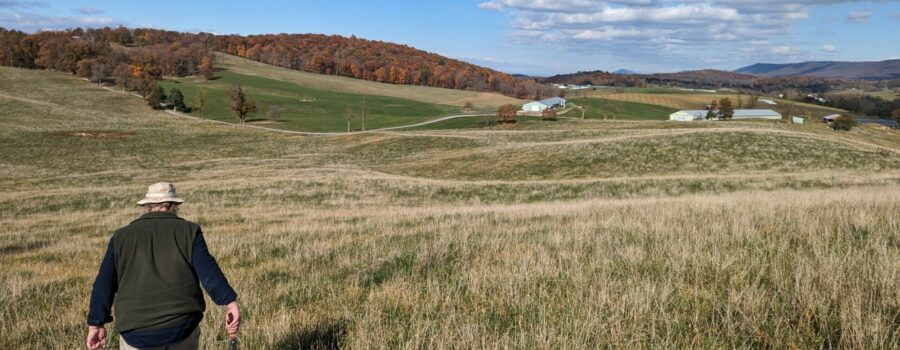“One of the challenges of farming is how difficult it can be to try new methods—even if they have been shown to lead to reduced costs, increased productivity or improved farm health,” said Lee Good who farms in the Linville area of Rockingham County. “Sometimes it’s a lack of information. At other times the necessary equipment may be difficult to get.”
Testing new farming practices, such as new ways to manage grazing rotations or planting cover crops, often only happens on agricultural research farms and are incorporated last on the farms that could benefit the most.
Good news! Conservation partners are working to change this.
Conservation staff from the state and federal conservation offices and regional nonprofits are working with the Alliance’s new Smith Creek Watershed coordinator, Caitlin Worsham, to determine which new protocol should be tested, enlist landowners willing to try something new, provide technical assistance implementing the new practices, collect samples and assist with any equipment needs.

Triple R farm in Page County uses intensive rotational grazing practices to ensure 300 days of grazing per year. It also helps to more evenly distribute nutrients, improve soils and reduce nutrient runoff. (Photo Credit Chris Anderson)
One farm is adopting “stockpile grazing” to extend the grazing season. Instead of cutting, drying and storing hay to feed in winter, a portion of pasture is set aside to allow the field to grow until frost and then the livestock are let in to graze and “harvest” their own feed. Stockpile grazing has the potential to decrease feed cost, reduce equipment usage, improve animal health, and improve manure distribution throughout the pastures.
Another farm is trying to increase forage yield by “double cropping.” This entails planting two crops that can be harvested separately at different times within the same area, such as planting a cover crop of barley into an already established field of alfalfa. In addition to increasing yield, double cropping can provide additional soil health benefits and improve forage nutrition.

Stay tuned! These new practices are just getting underway, but we will be monitoring progress and plan to schedule field days and farm tours so you can come out to learn how it went and maybe discover something new for your agricultural operation.

